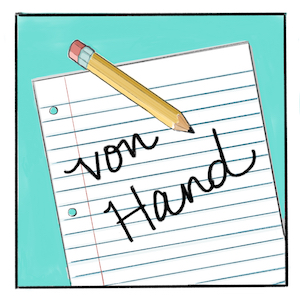In dieser Lektion
Wortschatz
Arbeit mit dem Wortschatz
German is quite famous for its capacity to form long compound nouns. The good news ist that you frequently already know distinct parts of those compound nouns, so guessing or learning their meanings is easy. Remember: the class of a compound noun is determined by the last noun.
Strukturen
Arbeit mit den Strukturen: Plural
Let’s practice the plural forms of animal names! You might recall that while the classes of German nouns seem unpredictable, there are some general rules that help with informed guessing if you have not quite yet memorized the classes of all the nouns. Before you do the exercises that follow, review the chart that you’ve seen before about genders or noun classes.
| Noun Class | Noun endings | Other linguistic indications | Meanings |
|---|---|---|---|
| die | -a, -anz, -ei, -enz, -heit, -ie, -ik, -in, -keit, -schaft, -sion, -tät, -tion, -ung, -ur | *Nouns ending in -t and that come from verbs; *Most nouns ending in -e | *Female animals and humans; *Planes, ships, and motorbikes; *Names of numerals |
| das | -chen, -lein, -ma, -ment, -sel, -tel, -tum, -um | *Most nouns starting with Ge-; *Many nouns ending with -nis and -sal; *Most nouns with the endings -al, -an, -al, -är, -at, -ent, -ett, -ier, -iv, -o, -on | *Young humans and animals; *Letters; *Citys, towns, countries, provinces, continents; *Different parts of speech used as nouns (like infinitives of verbs, also colors); *Metals and chemical elements; *Scientific units; *Names of companies with no article |
| der | -ant, -ast, -ich, -ig, -ismus, -ling, -or, -us | *Most nouns with only one syllable; *Most nouns ending in -le, -er, -en; *Most nouns that come from a strong verb with a vowel change | *Male animals and humans; *Seasons, months, days of the week; *Mountains and mountain ranges; *Rivers outside of Germany; *Rocks and minerals; *Compass points and words about weather and wind; *Names of currencies; *Car brands |
Arbeit mit den Strukturen: Akkusativ
Let’s practice using accusative case. Remember: feminine or die-class nouns and neuter or das-class nouns look just like nominative. There are no changes in their articles. Masculine or der-class nouns change the articles in the Singular forms: der changes to den and ein changes to einen. A group of der-nouns called masculine n-nouns or weak nouns also have a change for the noun itself. Das ist der Bär. Ich sehe den Bären.
Arbeit mit den Strukturen: Verben im Präsens
Let’s practice conjugating verbs in the present tense. Remember: some verbs with specific features require a bit of extra memorization, because their stem vowels change in the second and third person singular. However, they are also frequently used and you will become familiar with them rather quickly.
Beispiele:
to walk: ich laufe, du läufst, sie / es/ er / xier läuft
to see: ich sehe, du siehst, sie / es / er / xier sieht
Schreiben
Was haben Sie in der Gruppe diskutiert? Gibt es in Ihrer Gruppe Ähnlichkeiten (similarities) oder Unterschiede (differences)? Welche Tiere sehen (nicht) alle in der Gruppe? Welche Aktivitäten machen (nicht) alle in der Gruppe? Schreiben Sie 5-10 Sätze.
Hören
Hören 1: Leben mit Haustieren
Frau Bade erzählt, wie sie mit zwei Katzen in einer Wohnung lebt. Hören Sie gut zu!
Arbeit mit dem Hören
Hören 2: Kinderlied zu Tierlauten
Vor dem Hören
Do you know any children’s songs that revolve around the sounds that animals make? Can you sing or recite them?
“Das kleine Küken piept” was originally an Italian song that became a hit in the summer of 2012. That same summer it was released in a number of other languages and popular in Europe. A German version was also released, “Das kleine Kücken Piept.” Click on the link and listen to the song; then complete the activities that follow.
Arbeit mit dem Hören
Lautmalerei
 Onomatopoeia is when words are derived from sounds. The German word for this is “Lautmalerei” (Laut – sound; Malaeri – painting). A lot of animal sounds are onomatopoeic in the sense that the word for the sound sounds like the sound. They are also sometimes similar across cultures. Make a list of the German animals and sounds from the song. Then write the animals and sounds in any other languages that you might speak. What similarities/differences do you see?
Onomatopoeia is when words are derived from sounds. The German word for this is “Lautmalerei” (Laut – sound; Malaeri – painting). A lot of animal sounds are onomatopoeic in the sense that the word for the sound sounds like the sound. They are also sometimes similar across cultures. Make a list of the German animals and sounds from the song. Then write the animals and sounds in any other languages that you might speak. What similarities/differences do you see?
Wortschatz
Nouns
die Antilope, -n
der Elefant, -en
die Ente, -n
das Ferkel, –
der Fisch, -e
der Frosch, -¨e
die Giraffe, -n
der Hahn, -¨e
das Haustier, -e
der Hund, -e
das Huhn, -¨ er
das Insekt, -en
die Katze, -n
der Kater, –
das Kätzchen, –
der Kudu, –
die Kuh, -¨e
der Löwe, -n
die Maus, -¨e
das Nutztier, -e
das Pferd, -e
die Ratte, -n
das Schaf, -e
die Schildkröte, -n
das Schwein, -e
der Tierfilm, -e
der Vogel, -¨
der Welpe, -n
das Wildschwein, -e
das Zebra, -s
Verbs
adoptieren
aussterben
finden
fotografieren
füttern
geben
kaufen
pflegen
schützen
sehen
spazieren gehen
streicheln
versorgen
jagen
Adjectives and Adverbs
alt
groß
jung
klein
langhaarig
kurzhaarig
niedlich
nützlich
schädlich
wild
zahm
Other Words and Phrases
Angst haben vor (+Dativ)
eine Phobie haben vor (+Dativ)